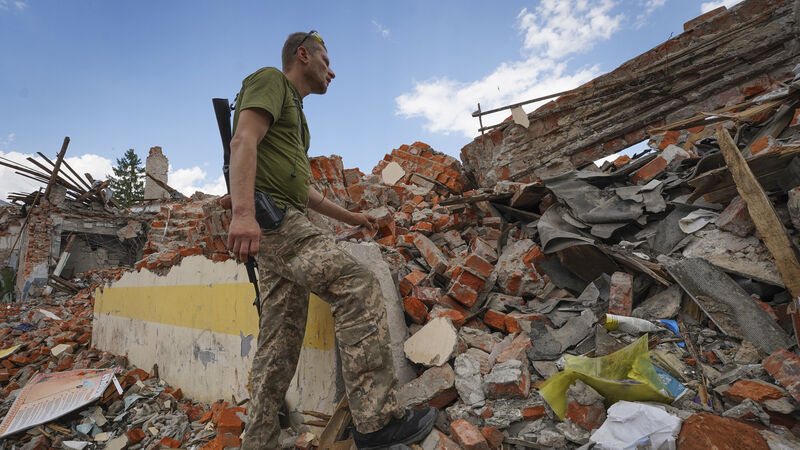A 'Marshall Plan' is needed to rebuild Ukraine, says Simon Coveney

The rubble of a school that was destroyed during a missile strike in the outskirts of Kharkiv: Simon Coveney said 'a global financial effort will be required to rebuild Ukraine after the war'. Picture: AP/Andrii Marienko
A 'Marshall Plan' involving financial support from countries across the world will be needed to rebuild Ukraine, Foreign Affairs Minister Simon Coveney has said.
It is now expected the initial reconstruction of the war-torn country will cost at least €750bn, part of which could be paid for through seized Russian assets, Mr Coveney has suggested.













